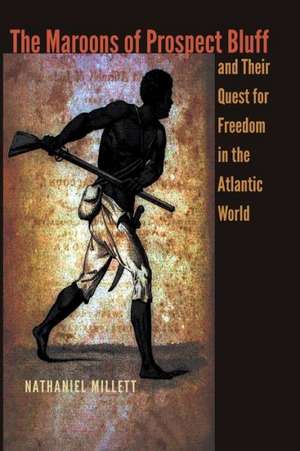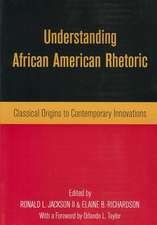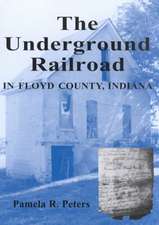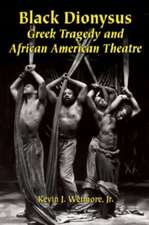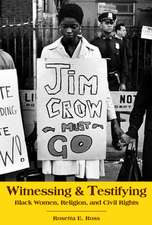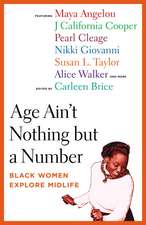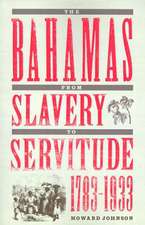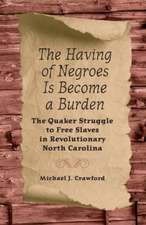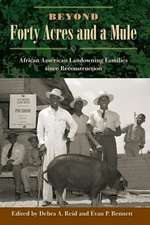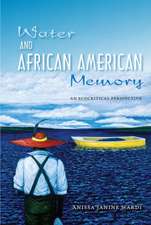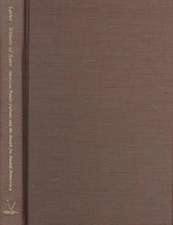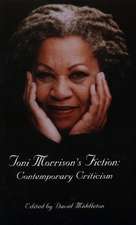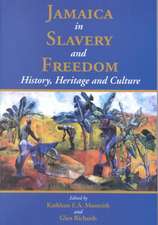The Maroons of Prospect Bluff and Their Quest for Freedom in the Atlantic World: Contested Boundaries
Autor Nathaniel Milletten Limba Engleză Paperback – 31 ian 2015
Vezi toate premiile Carte premiată
Florida Book Award (2014)
Preț: 222.36 lei
Nou
Puncte Express: 334
Preț estimativ în valută:
42.55€ • 44.54$ • 35.21£
42.55€ • 44.54$ • 35.21£
Carte tipărită la comandă
Livrare economică 07-21 aprilie
Preluare comenzi: 021 569.72.76
Specificații
ISBN-13: 9780813060866
ISBN-10: 0813060869
Pagini: 360
Dimensiuni: 156 x 234 x 21 mm
Greutate: 0.55 kg
Editura: University Press of Florida
Seria Contested Boundaries
ISBN-10: 0813060869
Pagini: 360
Dimensiuni: 156 x 234 x 21 mm
Greutate: 0.55 kg
Editura: University Press of Florida
Seria Contested Boundaries
Textul de pe ultima copertă
"A lively story that not only details the fort's rise and fall but also carefully fits its fate into the larger picture of Anglo-American imperial rivalry and the meaning of freedom in an age of revolution."--Robert Paquette, coauthor of "The Oxford Handbook of Slavery in the Americas" "By examining the maroon community that formed at Prospect Bluff after the War of 1812, Millett reveals how anti-slavery radicalism threatened to rewrite the history of race in the Early Republic."--Andrew K. Frank, author of "Creeks and Southerners: Biculturalism on the Early American Frontier" During the War of 1812, Edward Nicolls of the Royal Marines armed ex-slaves, Red Sticks, and Seminoles to fight alongside the British from a fort erected at Prospect Bluff in the Florida panhandle. This so-called Negro Fort became the largest maroon community ever to emerge in North America. Fervently opposed to slavery, Nicolls galvanized the Prospect Bluff allies with his radical anti-slavery ideology and the promise of freedom, asserting their rights and privileges equal to those of any British subject.
At war's end, Nicolls remained at Prospect Bluff, petitioning American officials to respect the territorial sovereignty of his Indian allies. When diplomacy failed, Nicolls left the fort to his black army of radicalized British subjects and encouraged it to defend the territory against all threats. What developed was a well-organized community that regarded itself as an independent British polity.
Nathaniel Millett examines how the Prospect Bluff maroons constructed their freedom, shedding light on the extent and limits of their physical and intellectual fight to claim their rights. He compares their settlement extensively with maroon communities across the Americas, emphasizing the rare opportunity offered by Prospect Bluff to examine black consciousness during the era of slavery.
At war's end, Nicolls remained at Prospect Bluff, petitioning American officials to respect the territorial sovereignty of his Indian allies. When diplomacy failed, Nicolls left the fort to his black army of radicalized British subjects and encouraged it to defend the territory against all threats. What developed was a well-organized community that regarded itself as an independent British polity.
Nathaniel Millett examines how the Prospect Bluff maroons constructed their freedom, shedding light on the extent and limits of their physical and intellectual fight to claim their rights. He compares their settlement extensively with maroon communities across the Americas, emphasizing the rare opportunity offered by Prospect Bluff to examine black consciousness during the era of slavery.
Premii
- Florida Book Award Bronze Medal Winner, 2014
